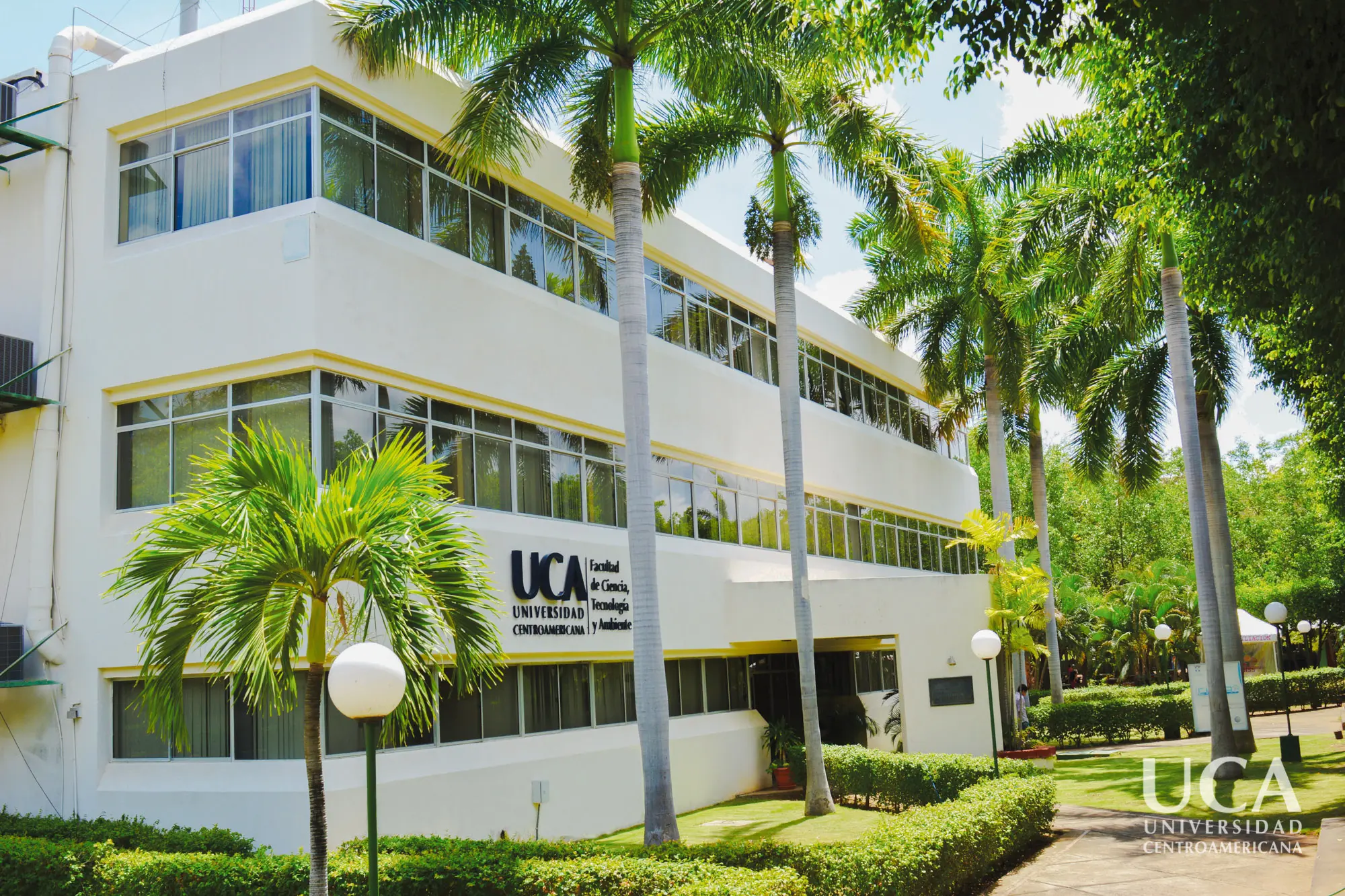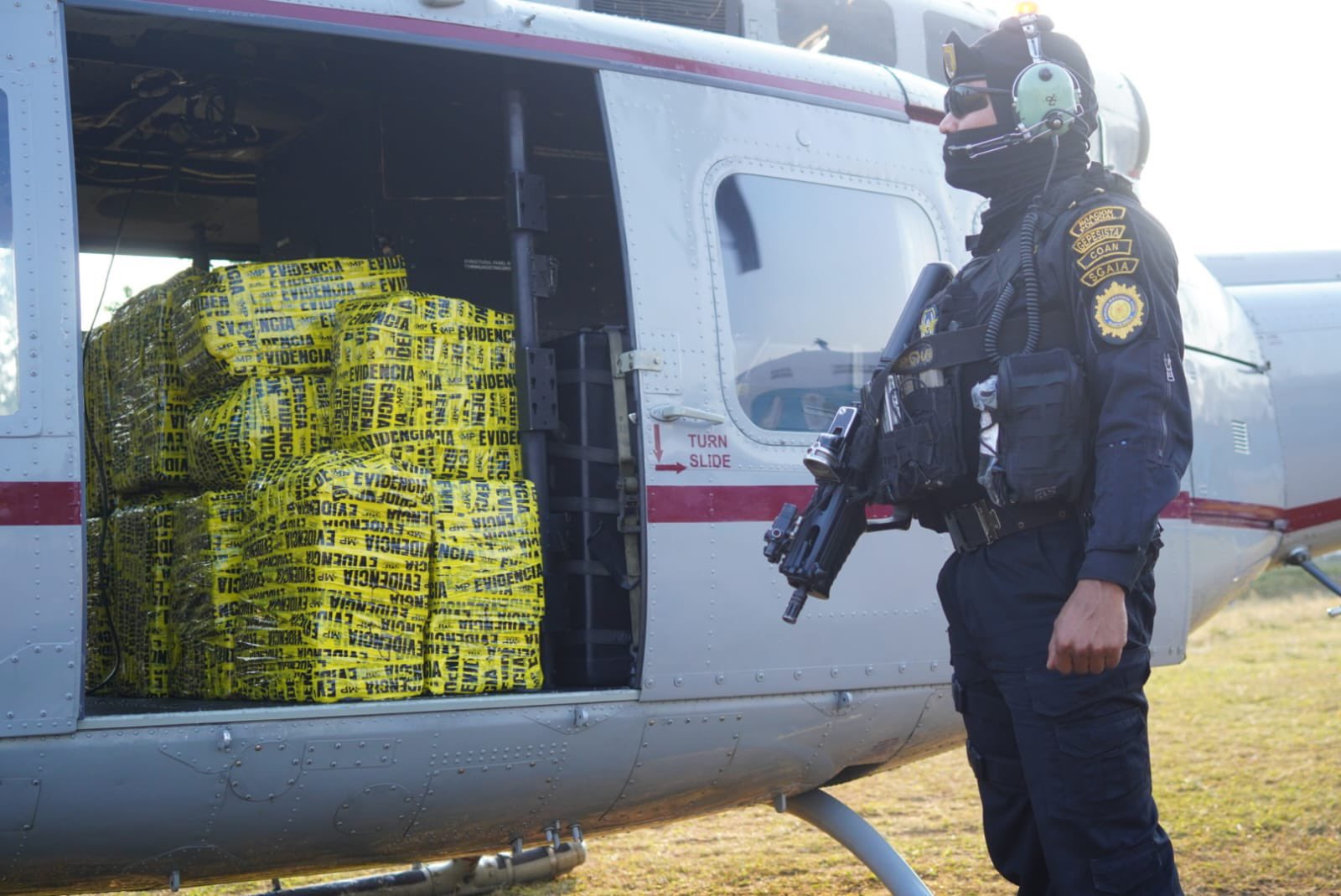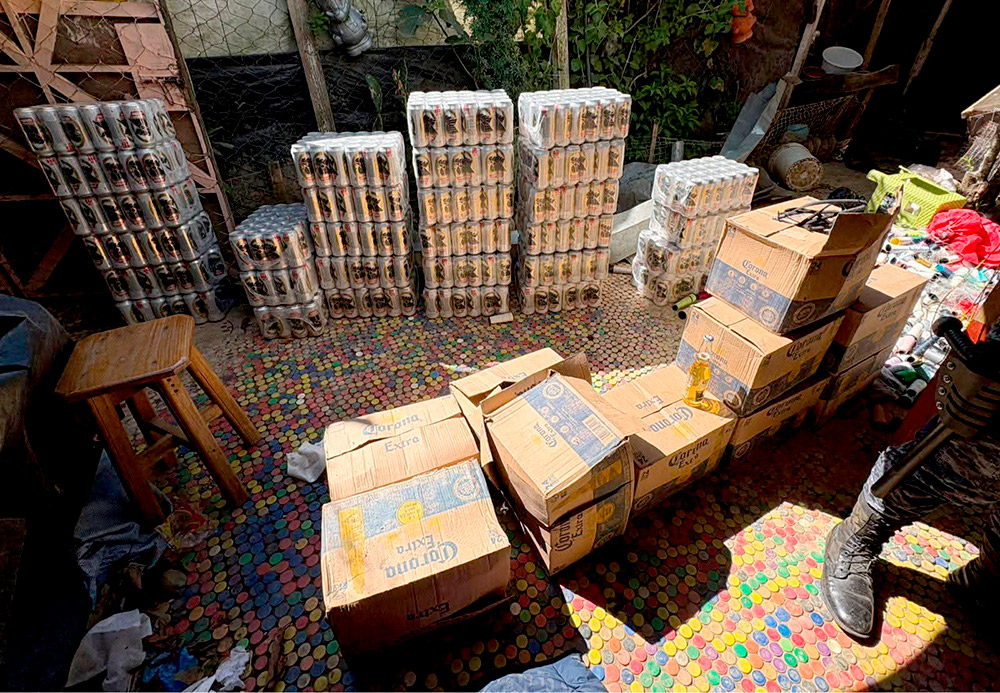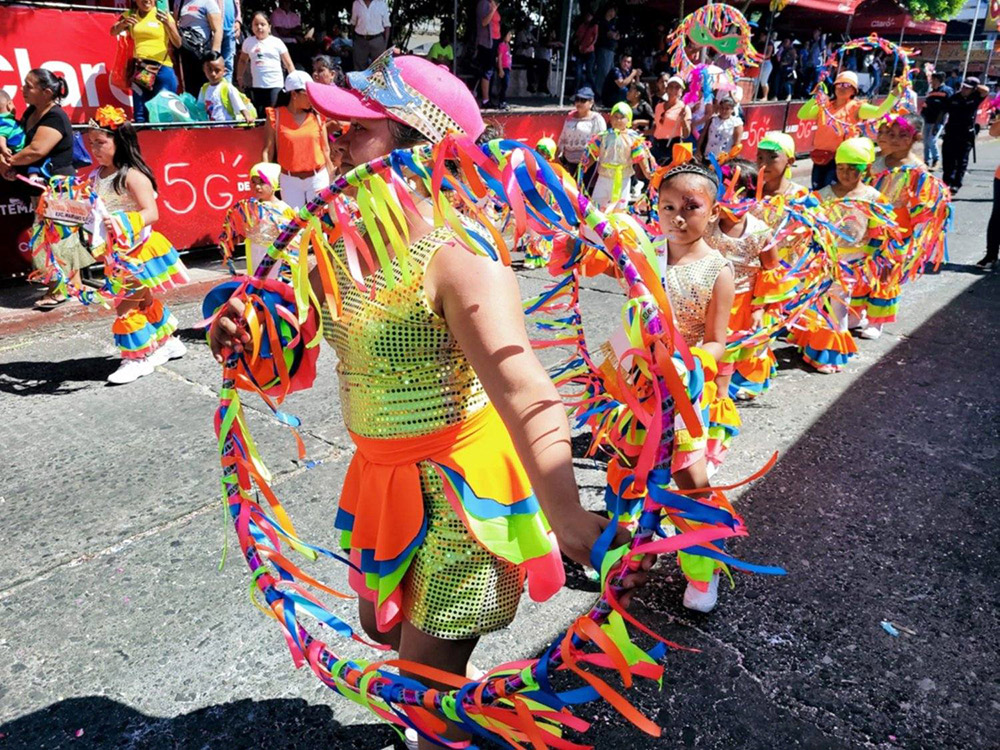Central America
Nicaraguan government seizes assets of one of the country’s most prestigious Jesuit universities

August 17|
The Nicaraguan Justice, controlled by the government presided by Daniel Ortega, ordered the Jesuit Central American University (UCA), one of the most prestigious private study centers in the country, to transfer its movable and immovable assets, as well as its bank accounts, to the State of Nicaragua, the educational institution informed on Wednesday.
The UCA, founded in 1960, confirmed through an email to the educational community and shared with EFE, that on Tuesday, at 17:29 hours (23:29 GMT), they received an official notice from Judge Gloria María Saavedra, head of the Tenth Criminal District Court of Hearings Managua District, notifying them of this and other measures.
In the official notice, the Jesuit university was notified of “the seizure of real estate, furniture, money in national or foreign currency from the immobilized bank accounts, financial products in national or foreign currency property of the UCA”, according to the letter.
The judge also ordered “that the seizure of all the goods described in the previous point be in favor of the State of Nicaragua, which will guarantee the continuity of all educational programs”.
Likewise, the judge sent notices to the Public Registry of Real Estate and Commercial Property, to the Superintendence of Banks, to the National Directorate of Registries, to the National Police and to the Attorney General’s Office of the Republic, “for the purposes of their charges”.
“The above measures are taken in correspondence to unfounded accusations that the Central American University functioned as a center of terrorism, organizing criminal groups,” explained the university.
“In the face of all this, the UCA reiterates its commitment to Nicaraguan society for a high quality higher education and faithful to its founding principles for 63 years,” it added.
He also thanked “the trust, solidarity and closeness expressed by students, teachers, administrative staff and the Nicaraguan society that identifies with the principles and values of this Alma Mater”.
In view of this official letter, the Jesuit university, whose rector is the priest Rolando Enrique Alvarado López, decided to suspend as of today “all academic and administrative activities, until it is possible to resume them in an ordinary manner, which will be informed through the official communication channels of the University”.
Last week, Nicaraguan authorities froze the bank accounts of the Jesuit university and immobilized its properties, amidst the friction between the Ortega government and the Nicaraguan Catholic Church.
On the other hand, the Directorate of Alternative Dispute Resolution (Dirac), attached to the Supreme Court of Justice, revoked last Monday the accreditation of the Mediation Center of the UCA, four months after the same entity renewed its accreditation.
In March 2022, Nicaraguan authorities excluded the UCA from the 6% constitutional allocation that universities receive annually.
In September of the same year, UCA Vice Rector Jorge Huete was banned from entering the country after a work trip to Argentina.
Former UCA rector José Alberto Idiáquez, who participated in a dialogue that sought to overcome the crisis Nicaragua has been going through since April 2018, was also unable to return to the country in July 2022, after traveling to Mexico to attend to health problems.
The Jesuit university was the scene of dozens of marches against the Ortega government, in the context of the crisis that Nicaragua has been going through since April 2018.
Also on May 30, 2018, it opened its doors to thousands of students who sought refuge after participating in a massive opposition march in Managua, called “The mother of all marches”, which ended bathed in blood, just after Ortega sentenced in a speech to his followers that “Nicaragua belongs to all of us and here we all stay”.
It also hosted the exhibition “Ama y no Olvida: Museo de la Memoria contra la Impunidad”, promoted by the Asociación de Madres de Abril (AMA), which seeks to remember those killed during the anti-government demonstrations in Nicaragua.
Nicaragua has been going through a political and social crisis since April 2018, which has been accentuated after the controversial general elections of November 7, 2021, in which Ortega was reelected for a fifth term with his main contenders in prison.
Central America
Guatemala seizes over a ton of cocaine hidden in flour at Pacific port

Guatemalan security forces seized more than one metric ton of cocaine on Sunday after discovering the drug hidden inside containers filled with flour at a Pacific port, police said.
The cocaine was found inside two shipping containers at Puerto Quetzal, located about 85 kilometers south of Guatemala City in the southern department of Escuintla, according to a police statement.
Authorities reported that 1,039 rectangular packages of cocaine were concealed inside bags of flour, with a total weight of 1,240 kilograms. No arrests were reported in connection with the operation.
Police said the shipment’s country of origin was not disclosed, and the seized drugs were airlifted to secure storage facilities in the capital for safekeeping.
International drug cartels frequently use Central America as a transit route for cocaine shipments bound for the United States, the world’s largest consumer of the drug.
Central America
Guatemala’s president rules out negotiations with inmates after prison riots

Guatemalan President Bernardo Arévalo stressed that his administration will not negotiate with inmates nor restore concessions granted under previous governments, insisting that the Executive’s priority is to maintain control of the prison system and restore order in detention centers.
Arévalo said one of the key measures implemented by authorities was the blocking of mobile phone signals inside prisons, an action he described as decisive in regaining control of the Renovación 1 penitentiary.
The riots reported at Renovación 1, Fraijanes 2, and the Preventive Detention Center for Men in Zone 18 of Guatemala City were aimed at pressuring the state to recover privileges that had been recently revoked, Arévalo said during a press conference held Wednesday at the National Palace of Culture.
The president explained that inmates were seeking to reinstate special detention conditions, including air conditioning, king-size beds, and internet access, benefits that he said were eliminated by the current administration.
“They attempted to extort the state in order to return to that system of privileges, but they failed,” Arévalo emphasized.
Central America
Mazatenango Carnival cancelled amid State of Siege in Guatemala

The municipal government of Mazatenango, in the department of Suchitepéquez, Guatemala, has cancelled the city’s traditional Carnival as a security measure aimed at protecting visitors and residents.
The decision was announced on Tuesday through the municipality’s official Facebook page and comes as a preventive action amid the state of siege declared by the national government last Sunday.
The Mazatenango Carnival, one of the country’s most emblematic festivities, boasts more than 140 years of traditionand typically draws large crowds from across Guatemala and neighboring regions. Its program usually includes parades of floats, the traditional “Rabbit Race,” street dancing and live music, concerts, and cultural events in the Central Plaza.
According to the official statement, the cancellation responds to the current security context and the restrictions associated with the state of siege, prioritizing public safety.
Municipal authorities clarified that the scheduled concert by La Arrolladora Banda El Limón will still take place separately and will be the sole responsibility of the private production company, independent of the cancelled carnival activities.
-

 Central America5 days ago
Central America5 days agoMazatenango Carnival cancelled amid State of Siege in Guatemala
-

 International5 days ago
International5 days agoTrump to invite Venezuela’s interim president Delcy Rodríguez to Washington
-

 International5 days ago
International5 days agoMarkets rise as Trump halts Europe tariffs and floats Greenland agreement framework
-

 International5 days ago
International5 days agoVenezuela’s interim president predicts 37% increase in revenues for 2026
-

 International3 days ago
International3 days agoTrump-Era Defense Plan Prioritizes Border Security and Scales Back Global Commitments
-

 Internacionales4 days ago
Internacionales4 days agoMajor winter storm threatens “catastrophic” ice and snow across much of the U.S.
-

 Central America3 days ago
Central America3 days agoGuatemala’s president rules out negotiations with inmates after prison riots
-

 International5 days ago
International5 days agoFour minors killed in deadly clash between FARC dissidents in Colombia’s Amazon
-

 International5 days ago
International5 days agoJapan reopens Kashiwazaki-Kariwa Plant despite public concerns
-

 International3 days ago
International3 days agoBogotá and Quito Seek Dialogue After Tariffs and Power Cut Escalate Tensions
-

 International3 days ago
International3 days agoGuatemala considers sending high-risk gang members to military prisons
-

 International2 days ago
International2 days agoDelcy Rodríguez seeks political agreements after Maduro’s ouster
-

 International2 days ago
International2 days agoFederal immigration agents kill man in Minneapolis, sparking protests and outrage
-

 International3 days ago
International3 days agoRights group says over 5,000 killed in Iran protests, mostly civilians
-

 International16 hours ago
International16 hours agoHistoric snowstorm paralyzes Toronto after 60 centimeters of snow
-

 International16 hours ago
International16 hours agoSpain’s irregular migrant population rises to 840,000, study finds
-

 International16 hours ago
International16 hours agoRights group says nearly 6,000 killed in Iran protest crackdown
-

 Central America16 hours ago
Central America16 hours agoGuatemala seizes over a ton of cocaine hidden in flour at Pacific port
-

 International16 hours ago
International16 hours agoVenezuela frees at least 80 political prisoners, NGO says
-

 International16 hours ago
International16 hours agoEU launches new probe into X over AI-generated fake nude images
-

 International16 hours ago
International16 hours agoFrance debates ban on social media for children under 15
-

 International16 hours ago
International16 hours agoSevere winter storm grips U.S., leaves multiple dead as extreme cold persists


























